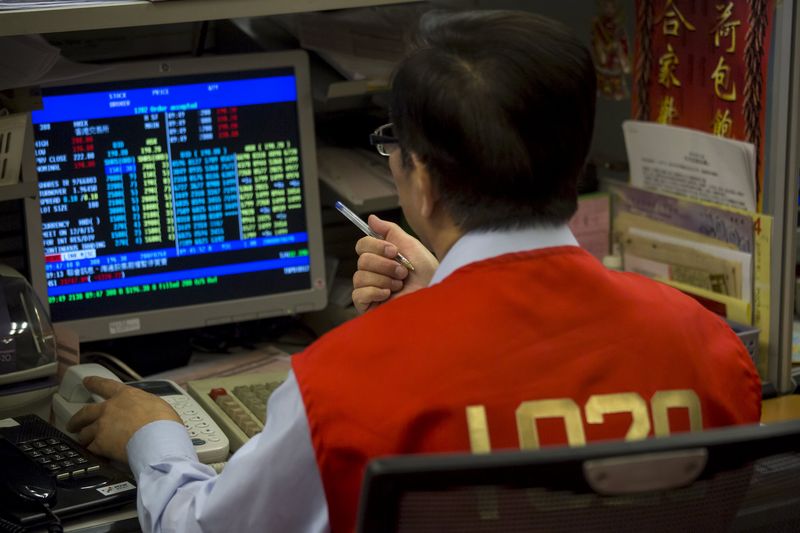By Alfred Romann
Investing.com – Asian stocks were mostly down on Friday morning, following the lead of U.S. markets, which saw their biggest slump in months, led downward by tech stocks.
There was no single reason for the sharp slump in U.S. markets, with analysts pointing to either increased volatility or the more typical September sell-off for the drop, which was led by some of the biggest names in technology.
“It’s too soon to say whether this is a pause that refreshes or whether this is the beginning of a more meaningful downturn in big tech,” Nancy Prial, co-chief executive at Essex Investment Management told Bloomberg. “Most of these are great companies with really robust growth opportunities, but the stocks are very richly valued.”
Asian markets were set to close off the week by following U.S. markets down.
Japan’s Nikkei 225 was down 1.09% by 10:05 PM ET (2:05 AM GMT) giving up gains from a day earlier. The Nikkei gained 1% on Thursday, which brought it back to its pre-pandemic levels, supported by the bull run in the U.S. and the emergence of Chief Cabinet Secretary Yoshihide Suga as a candidate to succeed outgoing Prime Minister Shinzo Abe.
China’s Shanghai Composite was down 1.45% while the Shenzhen Component, which is heavier on tech stocks, opened down 1.69%.
Hong Kong’s Hang Seng Index was down 1.71%, even as the city moved to relax some social distancing measures, extend dine-in hours at restaurants and allow gyms to reopen from today.
South Korea’s KOSPI was down 1.49%.
In Australia, the S&P/ASX 200 led the down day by falling 2.63%.
In the U.S., the Dow Jones Industrial Average closed down 2.78%, the biggest fall since June, while the S&P 500 fell 3.46% and the Nasdaq Composite clocked in a 4.96% fall. The biggest names in technology were also the biggest losers after a weeks-long bull run. Apple (NASDAQ:NASDAQ:AAPL), Microsoft (NASDAQ:NASDAQ:MSFT), Amazon (NASDAQ:NASDAQ:AMZN), Facebook (NASDAQ:NASDAQ:FB) and Alphabet (NASDAQ:NASDAQ:GOOGL) all finished Thursday with big losses.
“There has been no obvious catalyst for the move,” wrote Rodrigo Catril of National Australia Bank (OTC:NABZY) in a note. “Now the question is whether the correction has legs or whether investors are tempted back in.”
The stock market losses happened despite jobs data that was better than expected, with the U.S. Department of Labor reporting that initial jobless claims fell to 881,000 for the week to Aug. 28, lower than forecasts of 950,000.
Investors are now looking ahead to July retail sales data from Australia as well as a U.S. jobs report on Friday that is expected to show a rebound in August.
